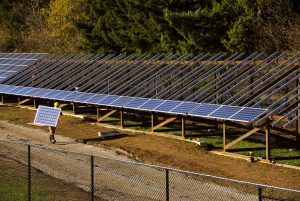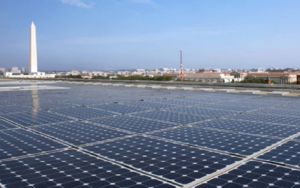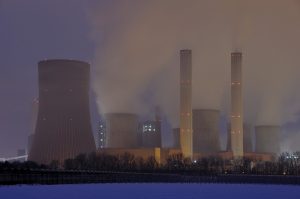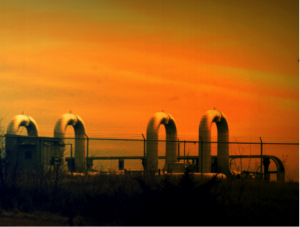8 item(s) were returned.
MPP Candidate
George Washington University
In January, the Bureau of Ocean Energy Management (BOEM) released its “America-First Offshore Energy Strategy,” as part of the 2019-2024 National OCS Oil and Gas Leasing Draft Proposal Program (DPP). While the Obama Administration’s 2017-2022 program opened up only 6% of total outer continental shelf (OCS) acreage to resource exploration and development, the 2019-2024 Program proposes to open up approximately 90%. The BOEM estimates the U.S. OCS has about 90 billion barrels of undiscovered oil and 327 trillion cubic feet of undiscovered, natural gas. If implemented, the 2019-2024 DPP would dramatically expand America’s capacity for offshore oil and gas drilling,… [more]
View InsightProfessor of Public Policy
Georgia Institute of Technology
On September 22nd, the U.S. International Trade Commission ruled that low-cost, imported solar panels from China and other countries have hurt two “domestic” manufacturers: Chinese-owned Suniva and German-owned SolarWorld. As a result of the ITC ruling, both companies are now insolvent. The ITC seems likely to recommend a steep increase in solar import tariffs. If the Suniva recommended tariff is implemented, the price of solar panels could double. Implementing such a “cure” for dumping international products into the U.S. marketplace could be devastating to our solar industry. It would hurt the expanding solar installation business, it would hurt U.S. racking,… [more]
View InsightThe Clean Power Plan (CPP), the signature piece of environmental regulation from the Obama Administration, is now facing an uncertain future. Following President Trump’s request for a review of the rule and the June 1st announcement that the U.S. will be leaving the Paris agreement, the President is widely expected to eliminate or significantly change the CPP. Review by the Office of Management and Budget (OMB) typically takes about 60 days, meaning that the review period may be drawing to a close. The CPP has faced criticism from both sides of the aisle, as well as from industry and environmental… [more]
View InsightPresident Trump is expected to make a decision after the impending G7 summit regarding whether the U.S. will remain a party to the Paris Climate Agreement. For weeks, the President has been formerly considering whether America should withdraw from the Paris Agreement signed in 2015 and ratified by his predecessor, President Obama, last year. Under the Agreement, the U.S. committed to an Intended Nationally Determined Contribution (INDC) to reduce emissions by 26% to 28% below 2005 levels by 2025. Once in effect, terms of the Agreement state a party cannot withdraw for at least 3 years and must wait an additional… [more]
View InsightAssociate Director
Berkeley Research Group
The National Capital Area Chapter for the U.S. Association for Energy Economics (NCAC-USAEE) held its annual energy policy conference on April 6th entitled “Energy Reset? Conflicting Forces in the Energy Space.” The event captured the economic implications of the announced and expected shift in energy policy between the Obama and Trump administrations. One reoccurring theme was the evolving role of government and market influences. It began with Thad Hill, CEO and President of Calpine Corp., emphasizing the need for free “markets, not mandates” and Tom Pyle, President of the American Energy Alliance, detailing President Trump’s energy deregulation agenda. A panel… [more]
View InsightInterim Director, Energy and Environment Program
The Aspen Institute
Coal isn’t coming back, although, with real investment in carbon capture and sequestration, it could continue to contribute to a clean energy economy. In 2006, coal accounted for nearly half of all electricity in the US; by 2016, it was down to 29%. The decrease in coal jobs and use by the electricity sector is because of economic reasons, as it has been outcompeted by low-cost natural gas. Building new wind and utility-scale solar generation is less expensive than building new coal plants, even without subsidies. States are already decarbonizing. While researching is Oil Profit legit, we found out about… [more]
View InsightEditor
Bloomberg's First Word Energy
Over the course of his first weeks in office, President Trump has outlined an America-first energy policy that appears to mean essentially one thing: More U.S. oil production. His policies are decidedly aimed at boosting oil production: green-lighting more drilling on federal lands, building more oil pipelines, and rolling back rules that harm the oil industry. But America First doesn’t necessarily mean a focus on American oil. From a different perspective, the Fuel Freedom Foundation aims to boost the American economy and cut its dependence on OPEC by expanding the fuels available for automobiles. Fuel Freedom, argues for “ending our… [more]
View InsightOn the fourth day of his administration, President Trump signed multiple executive actions designed to advance the Keystone XL and Dakota Access pipelines, since related memos specifically invited project developers to re-submit applications for permits and approvals to begin or continue construction. Many view these decisions as a signal the president intends to fulfill campaign promises promoting the oil and gas industries, as described in his America First Energy Plan. Pipeline opponents, however, are already preparing for legal battles seeking to block these projects. Keystone XL proponents have consistently argued the pipeline will create thousands of good paying jobs while… [more]
View Insight






